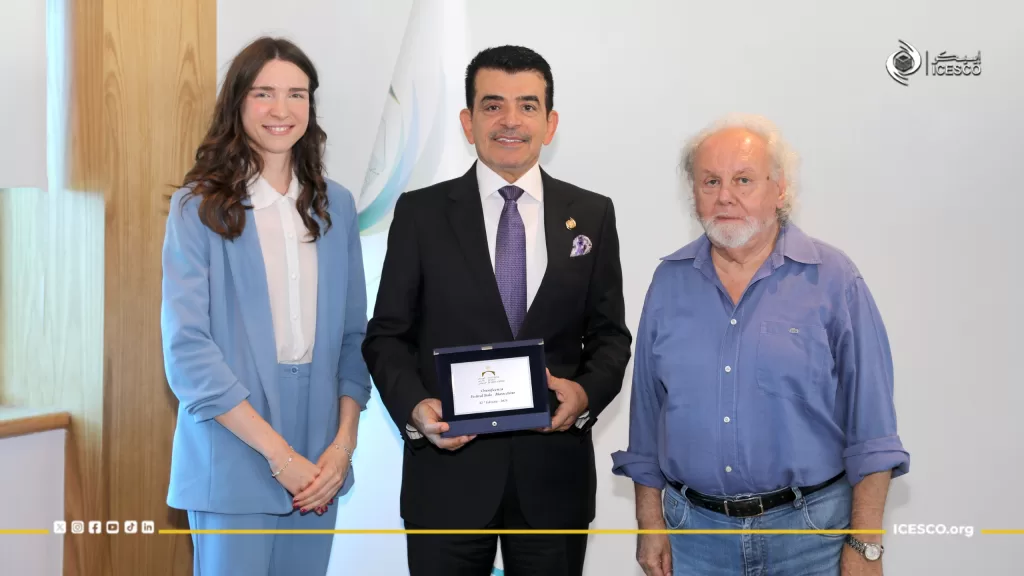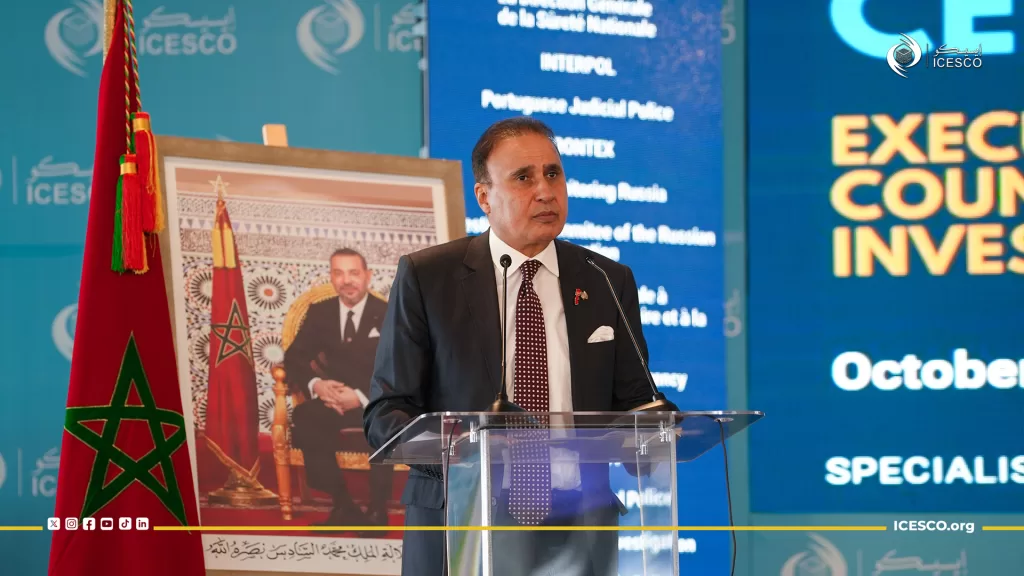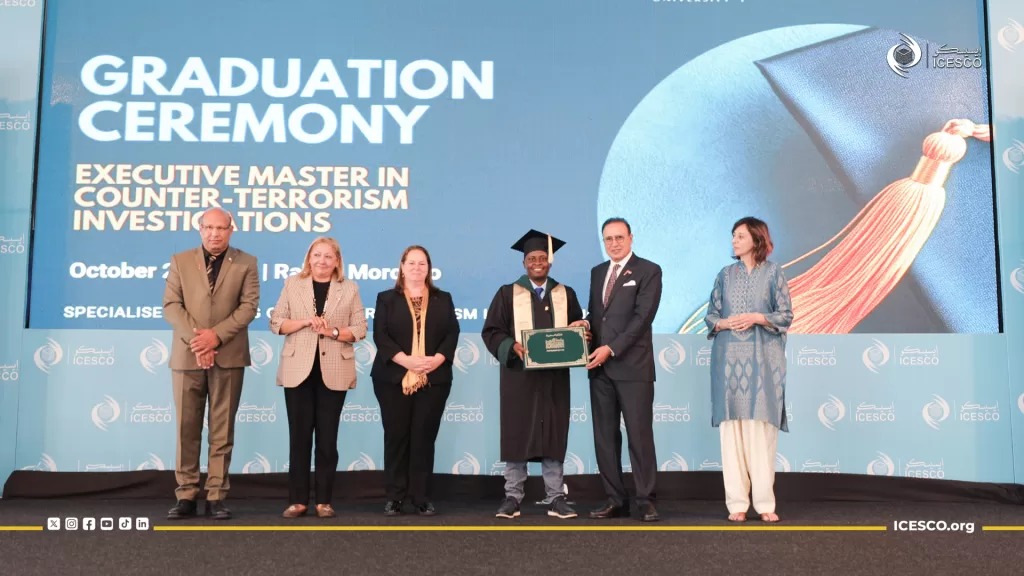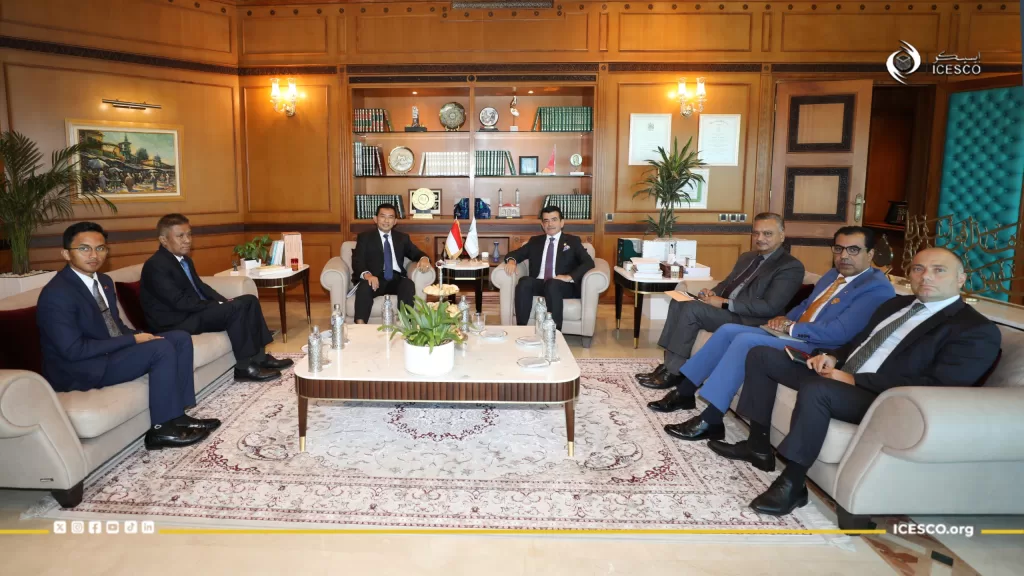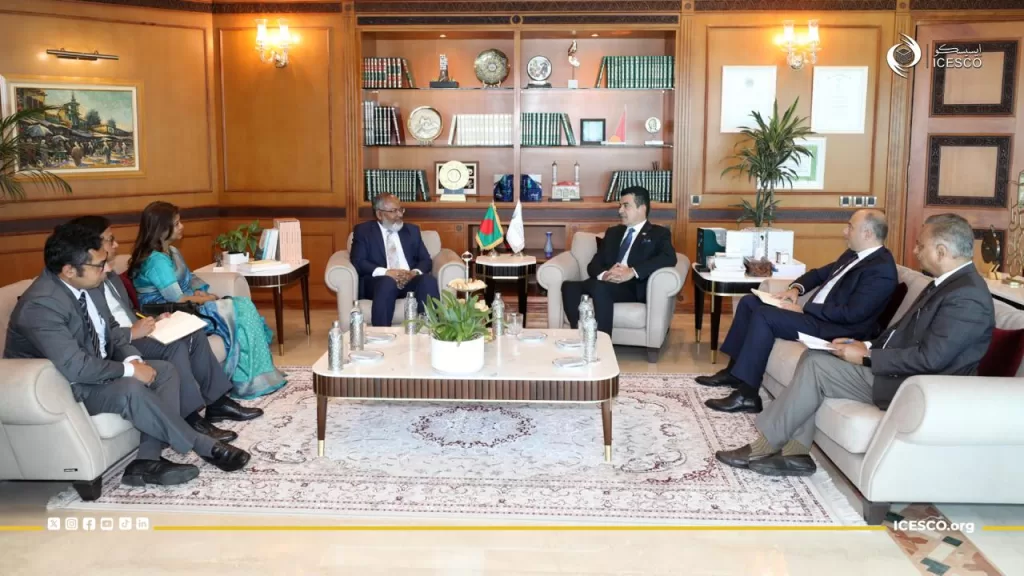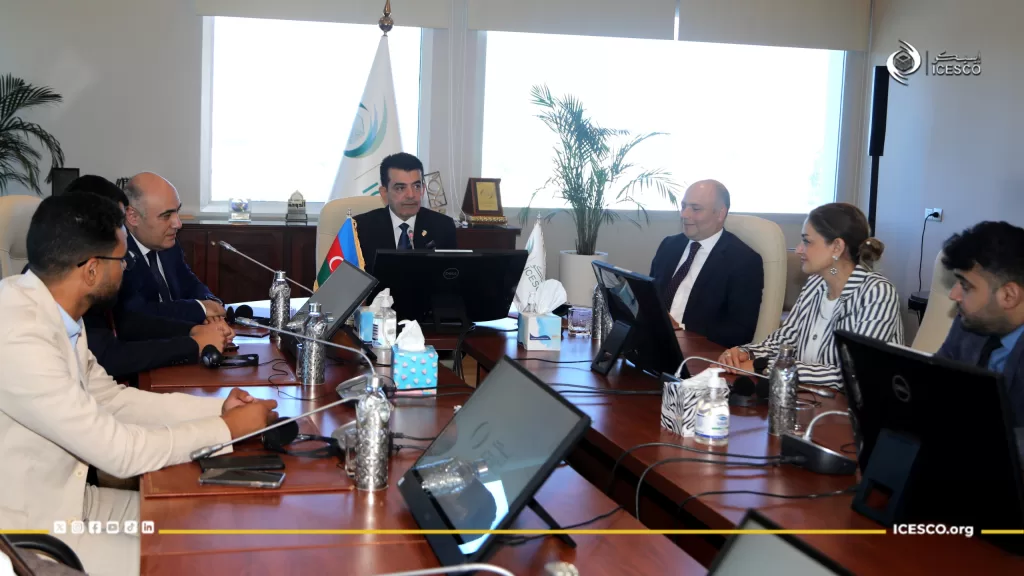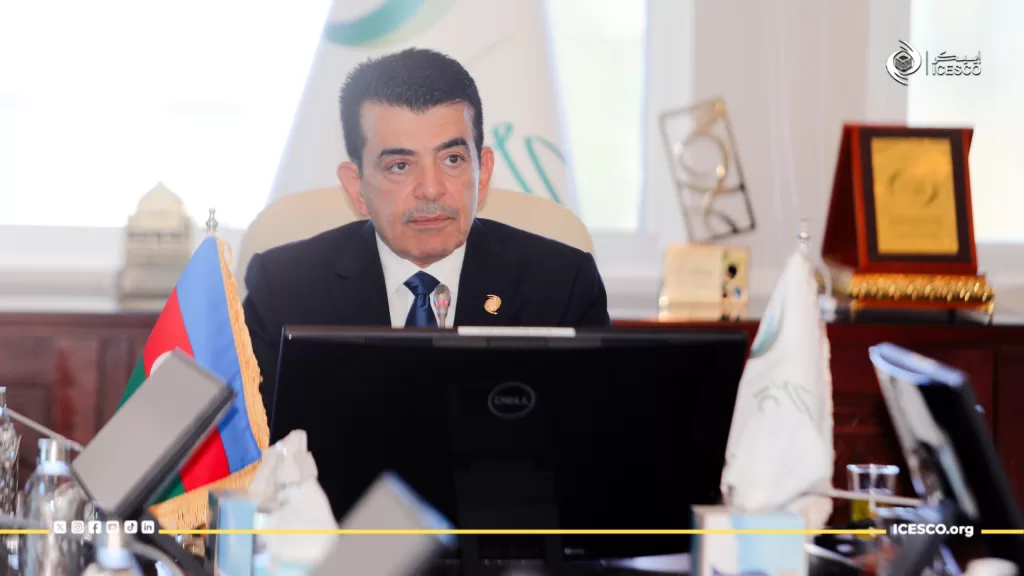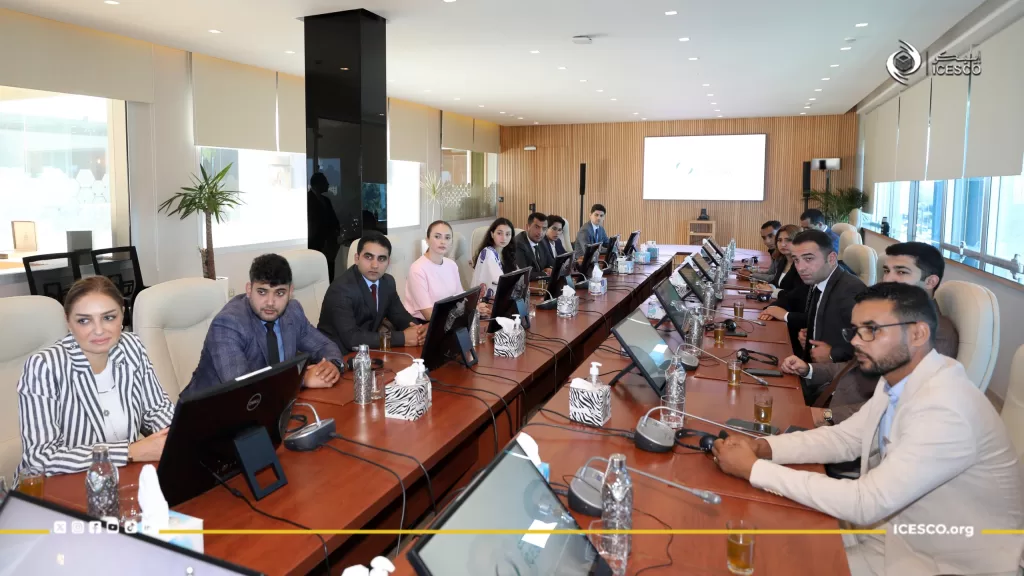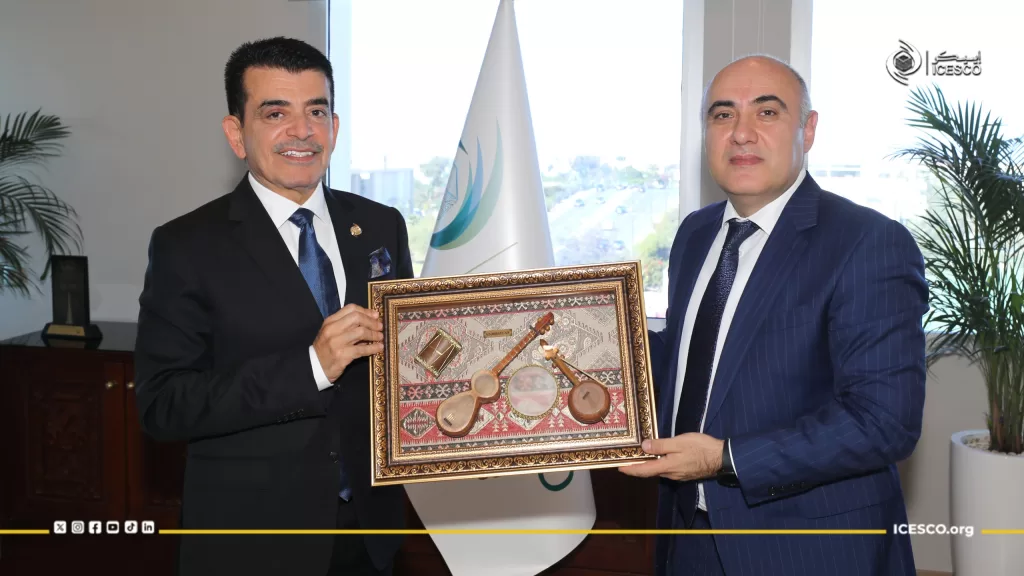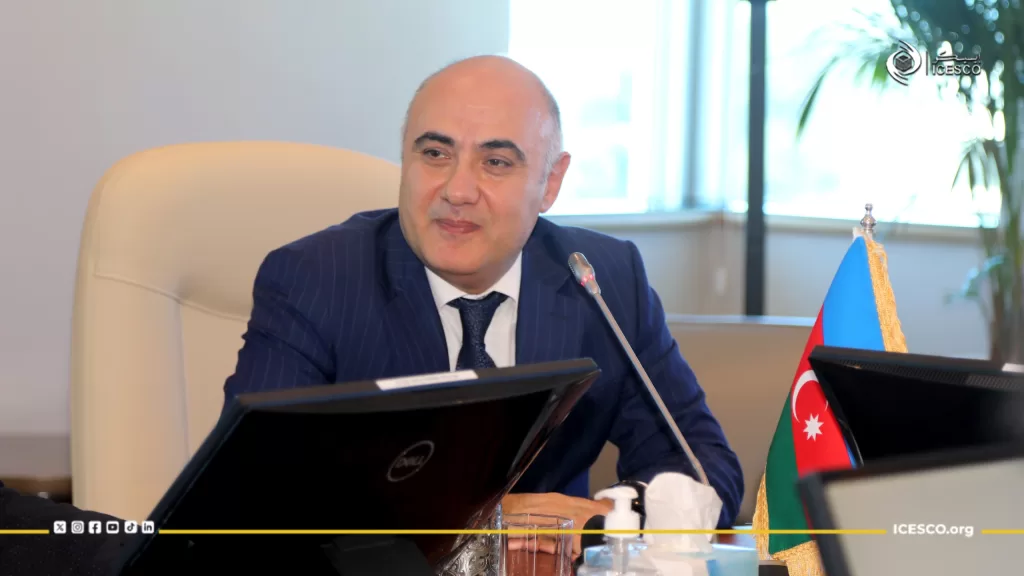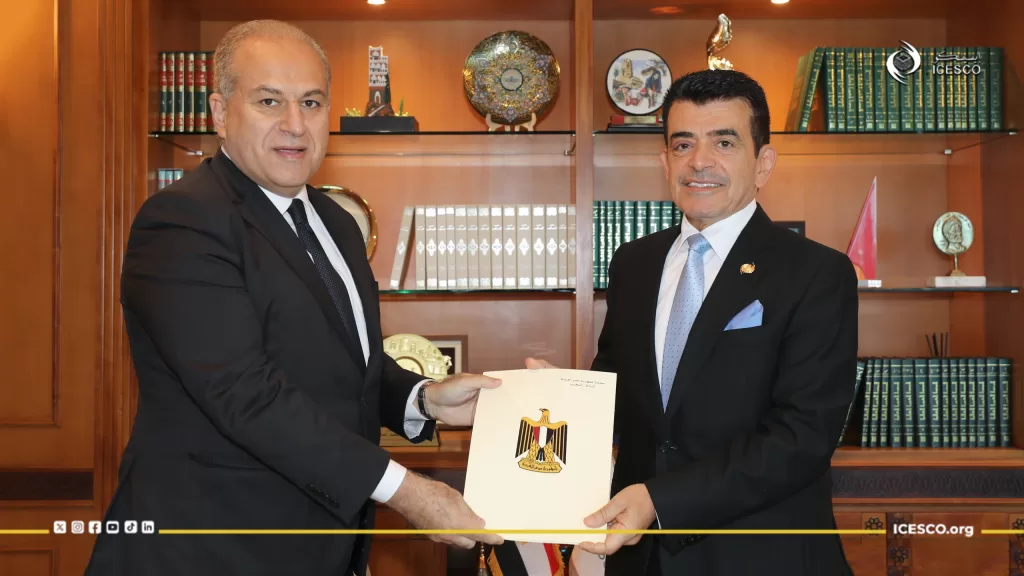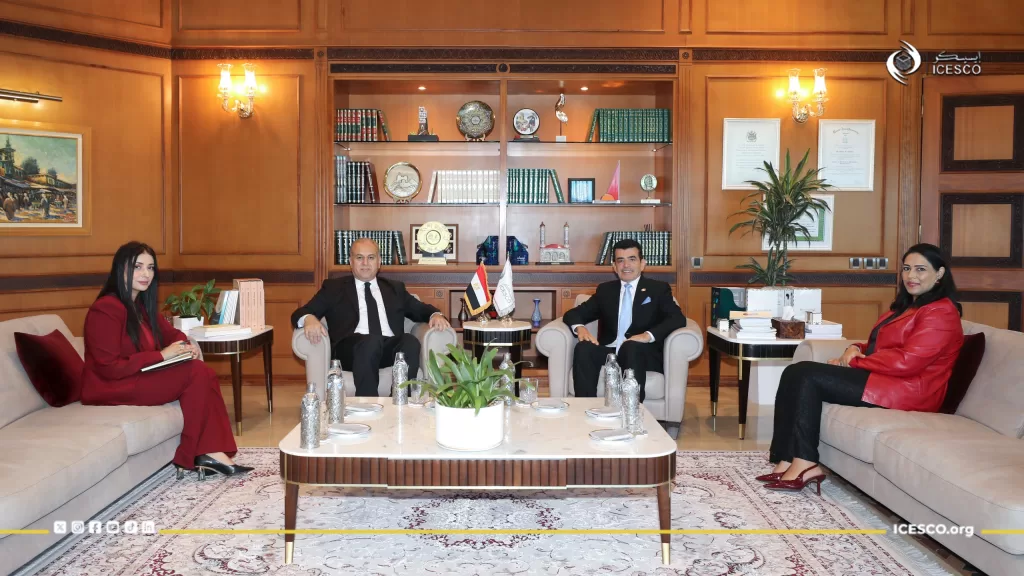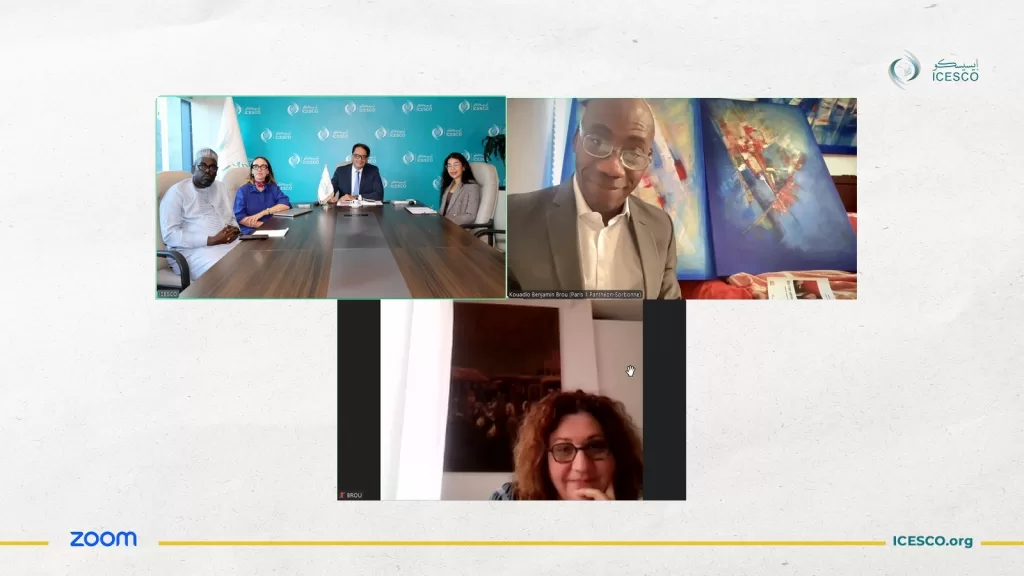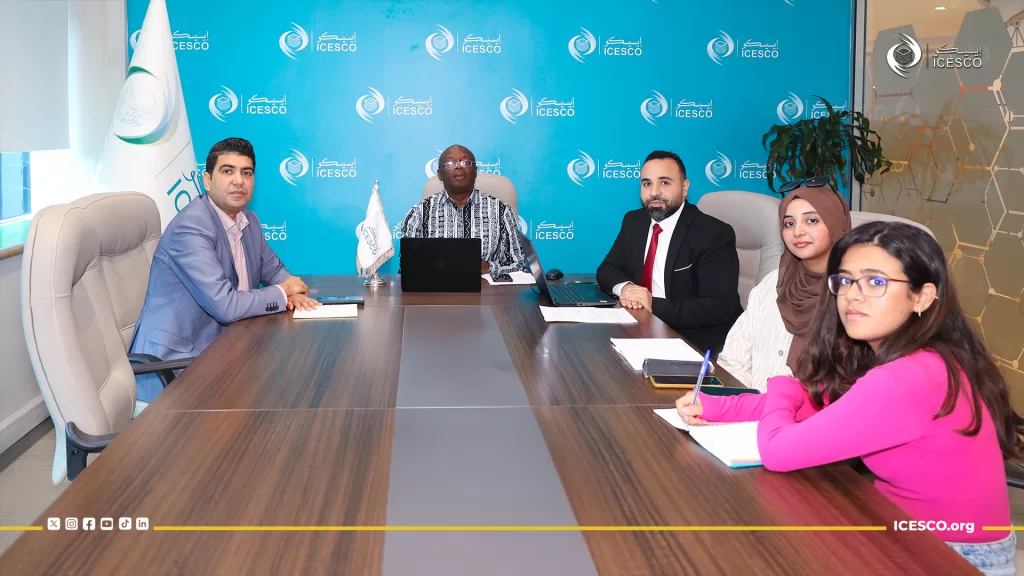Dr. Salim M. AlMalik, Director-General of the Islamic World Educational, Scientific and Cultural Organization (ICESCO), received, on Thursday, 23 October 2025, at the Organization’s headquarters in Rabat, a delegation from the Moroccan-Italian Cooperation Association, composed of scientific figures and experts from civil society organizations, to examine means of cooperation in areas of shared interest.
During the meeting, Dr. Salim M. AlMalik reviewed the Organization’s vision for strengthening partnerships with civil society organizations and research centers within the Islamic world and beyond, emphasizing ICESCO’s willingness to cooperate with the entities represented by the delegation and its desire to expand joint work with Italy, which he had visited twice for this purpose.
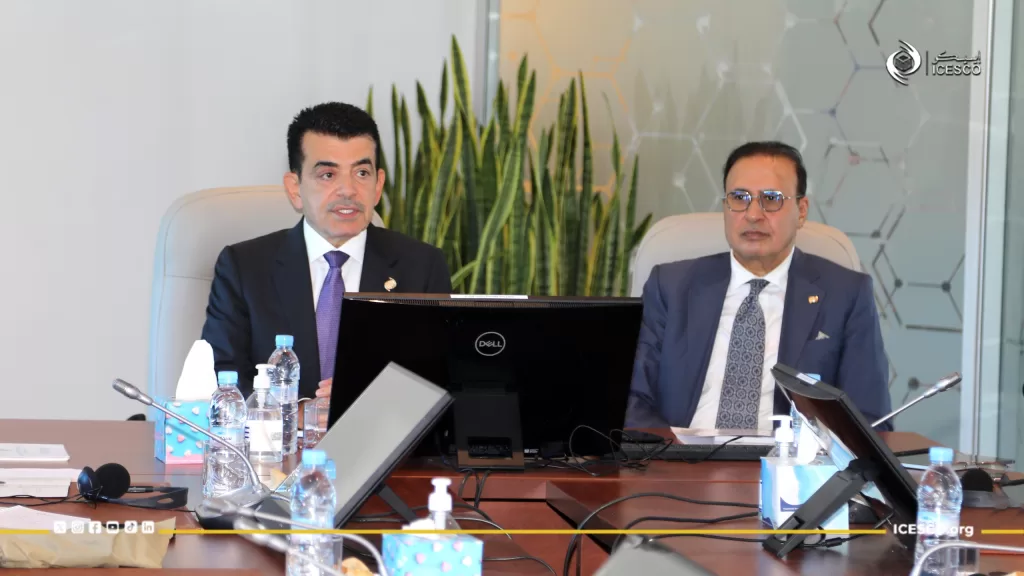
Members of the delegation indicated that their visit to ICESCO aimed to reinforce cooperation with the Organization’s various sectors and to consolidate ties between Italian universities and universities affiliated with the Federation of the Universities of the Islamic World (FUIW) under ICESCO. The two parties also discussed topics related to civilizational dialogue and the pursuit of combating all forms of hatred and racism through intensified efforts to reconcile perspectives, reduce misunderstandings, and develop communication mechanisms.
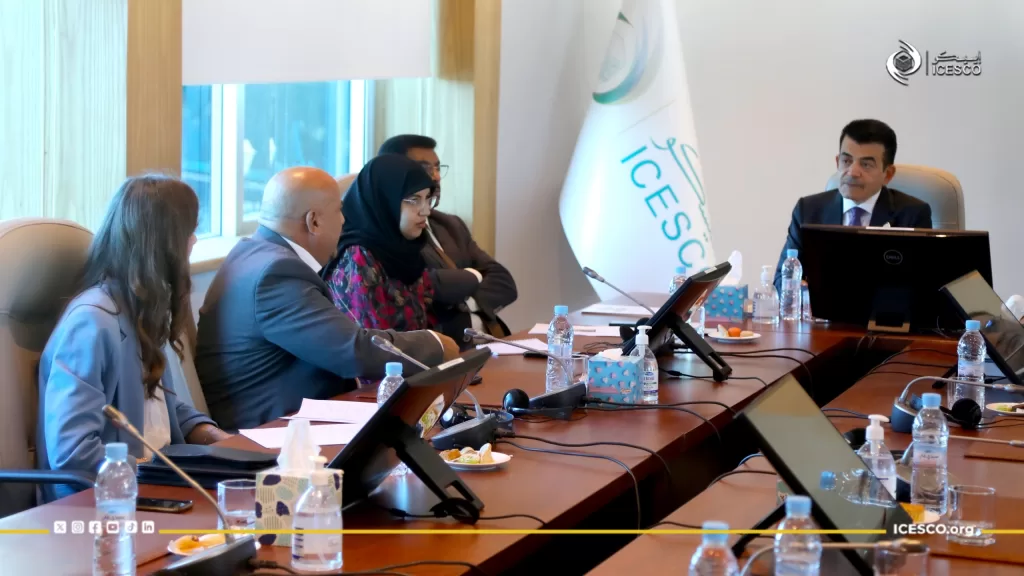
At the close of the meeting, the two parties agreed to hold joint meetings starting in May 2026 to implement shared cooperation programs.
Representing ICESCO at the meeting were Dr. Abdelilah Benarafa, Deputy Director-General; Ambassador Khalid Fathalrahman, Director of the Center for Civilizational Dialogue; and Dr. Omar Halli, Advisor to the Director-General for FUIW.
